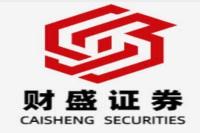Navigating the New Global Landscape: Redefining Leadership for a Sino-European Future
Meta Description: Explore the evolving Sino-European business landscape, the impact of AI and technological advancements, and the crucial role of transformative leadership in fostering collaboration and navigating global uncertainties. Discover insights from leading experts at the 2024 European Forum.
Imagine this: two economic giants, Europe and China, navigating a sea of unprecedented challenges – geopolitical shifts, economic uncertainties, and a technological revolution spearheaded by AI. The stakes are higher than ever. The future of global trade, prosperity, and even peace, hinges on their ability to cooperate, innovate, and adapt. This isn't just about spreadsheets and profit margins; it's about building a shared future, a sustainable world where both sides thrive. This article, born from firsthand insights and deep analysis of the 10th annual European Forum, dives into the heart of this critical relationship, unpacking the key leadership paradigms required to navigate the complexities ahead. You'll gain exclusive access to expert opinions from leading figures in business, politics, and academia, offering invaluable perspectives on the opportunities and challenges facing both continents. Forget dry statistics; this is a human story of collaboration, resilience, and the pursuit of a brighter tomorrow. Prepare to be inspired, informed, and empowered to navigate the future of global business. This isn't just another article; it's your roadmap to success in a rapidly changing world.
The Rise of AI and its Impact on Sino-European Business
The 2024 European Forum, held in Brussels and Shanghai, served as a crucial platform for discussing the evolving landscape of Sino-European relations. The overarching theme: "Responding to Contemporary Challenges: A New Paradigm of Leadership for Sino-European Businesses." The discussions weren't just theoretical; they were fueled by real-world examples and the urgent need for transformative leadership in the face of rapid technological advancement, particularly the rise of artificial intelligence (AI).
As Professor Wang Hong, Dean of CEIBS (China Europe International Business School), eloquently pointed out, the global economy is being driven by two powerful forces: disruptive technological revolutions and the transformation of globalization itself. The Fourth Industrial Revolution, propelled by AI, is reshaping business models and economic structures globally. In China, the “three new” economy (new industries, new business models, and new formats) contributed over ¥22.4 billion in added value in 2023 alone. Globally, generative AI is projected to boost GDP by 7% over the next decade – a staggering figure that underscores its transformative potential.
However, the picture isn't entirely rosy. The rise of protectionism and deglobalization, often referred to as "decoupling" or the creation of "siloed economies," poses a significant threat to global cooperation and trade. This highlights the critical need for a more open, inclusive, and mutually beneficial form of globalization, a role that both China and Europe are uniquely positioned to lead.
Transformative Leadership: A Necessity for the Future
The Forum highlighted the pressing need for transformative leadership in this complex environment. Gwenn Sonck, Executive Director of the EU-China Trade Association, emphasized the strong interdependence and complementarity between the EU and Chinese economies. With a daily trade volume of €2.3 billion and each being the other's second largest trading partner, their economic destinies are inextricably linked. Despite global headwinds, China remains one of the fastest-growing major economies, projected to contribute a third of global growth in 2024. This makes the Chinese market crucial for businesses aspiring to global competitiveness, and vice versa.
But navigating this complex landscape requires more than just business acumen; it demands adaptability and foresight. Sonck stressed the importance of leaders understanding each other's business environments and fostering open dialogue to bridge cultural gaps and build sustainable partnerships. This isn't just about signing deals; it's about cultivating trust and mutual understanding.
The Role of Education and Communication
The importance of education and communication was a recurring theme throughout the Forum. Pascal Lamy, former Director-General of the World Trade Organization, highlighted the need for deeper cooperation between Chinese and European business leaders, emphasizing the critical role education plays in bridging understanding. He stressed that both the experienced and the next generation of leaders carry an unprecedented responsibility, leveraging education to foster mutual understanding between Europe and China. This isn't solely about acquiring technical skills; it's about cultivating cultural sensitivity, empathy, and a shared vision for the future.
Dita Charanzová, former Vice-President of the European Parliament, echoed this sentiment, emphasizing the vital role of communication and collective leadership. She pointed out that successful leadership in today's rapidly changing world requires adaptability and clear communication, building bridges between politics, business, and diverse cultures.
Sino-European Collaboration: Overcoming Challenges, Embracing Opportunities
Ambassador Zhu Jing of the Chinese Embassy to the EU provided a powerful perspective on Sino-European relations. He emphasized that openness fosters progress while isolation leads to stagnation. Economic globalization is an unstoppable force, and attempts to counter its challenges through protectionist measures are ultimately counterproductive. He stressed that China’s economic outlook remains bright, with government policies boosting market confidence and driving economic vitality. He further suggested that China's modernization and European integration should be mutually supportive, creating a win-win scenario through complementary strengths. The successful collaboration of the past 50 years between China and Europe demonstrates that differences don't preclude cooperation; it requires political will and determination.
FAQ: Answering Your Burning Questions
Here are some frequently asked questions about the Sino-European business landscape and the insights gained from the European Forum:
Q1: What are the biggest challenges facing Sino-European business cooperation?
A1: Geopolitical tensions, protectionist policies, differing regulatory frameworks, and cultural misunderstandings pose significant challenges. However, the strong economic interdependence between the two regions makes collaboration crucial for overcoming these hurdles.
Q2: How can AI be leveraged to strengthen Sino-European cooperation?
A2: AI can drive innovation, improve efficiency, and create new opportunities across various sectors. Collaboration in AI research and development can yield significant benefits for both regions.
Q3: What role does education play in fostering Sino-European understanding?
A3: Education is crucial in building bridges between cultures, promoting mutual understanding, and preparing future leaders for the challenges and opportunities of the globalized world.
Q4: What is the significance of transformative leadership in this context?
A4: Transformative leaders are adaptable, forward-thinking, and possess strong communication skills. They are capable of navigating complex challenges, fostering collaboration, and building sustainable partnerships.
Q5: What is the future outlook for Sino-European trade relations?
A5: The future outlook is complex, with both opportunities and challenges. The success of Sino-European trade relations will depend on the ability of leaders to navigate geopolitical tensions, promote open communication, and foster mutual trust.
Q6: How can businesses prepare for the changing landscape?
A6: Businesses should prioritize adaptability, invest in education and training, cultivate strong communication skills, and actively seek collaboration opportunities with partners in both Europe and China.
Conclusion: A Shared Future
The 2024 European Forum underscored the critical need for a new paradigm of leadership in Sino-European relations. Navigating the complexities of a rapidly changing global landscape requires adaptability, foresight, and a commitment to collaboration. By embracing the potential of AI, fostering open communication, and prioritizing education, both Europe and China can build a more prosperous and sustainable future together. The journey won't be easy, but the potential rewards – a more stable, equitable, and innovative world – make the effort more than worthwhile. The time for action is now.



